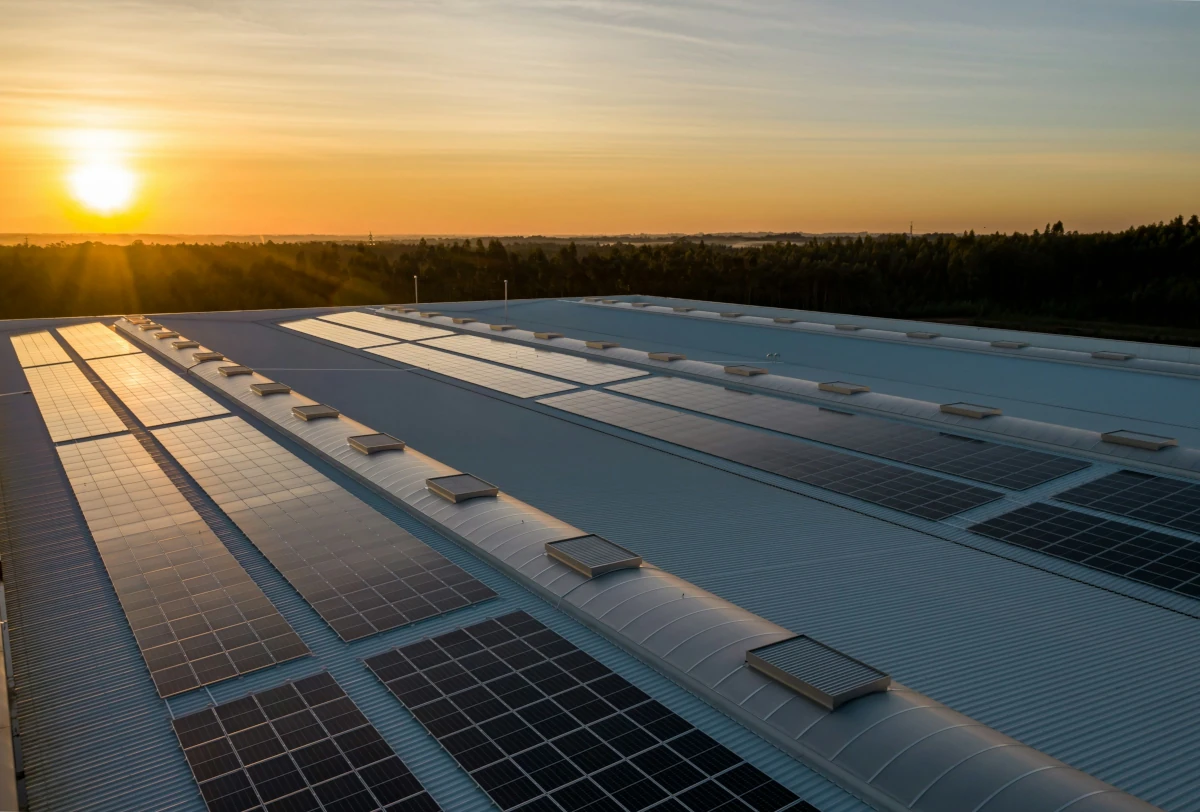
With the political parties pussyfooting around net zero claims ahead of the general election, a more robust approach to accelerating the roll-out of solar is critical to driving confidence around achieving decarbonisation goals without burdening the taxpayer, writes renewable energy specialist AMPYR Distributed Energy.
We are witnessing a ‘solar revolution’ in the UK, according to energy think tank Ember.1 Rooftop deployment is seemingly booming, with more than 190,000 installations carried out in 2023 alone.2 The Microgeneration Certification Scheme (MCS) suggests that 2024 will likely see the sector’s 13th year of continued incremental growth, while forecasts from SolarPower Europe predict a staggering 22% increase in annual demand. However, affirmative policy action is needed to capitalise on this momentum and realise the full impact that solar can deliver for the UK’s energy transition.
Putting renewable generation at (or near) the point of consumption is by far one of the cheapest and most efficient forms of energy available. Today, technological progress and maturing funding models are making on-site solar increasingly simple for businesses, offering the potential to significantly reduce carbon without resorting to subsidies.
Two elements are essential to achieving this. Firstly, learn from other European markets when it comes to accelerating the adoption of collective self-consumption, which could prove a game-changer when it comes to tackling local grid constraints and unlocking stranded projects. Secondly, we need to see clarity and proactivity when it comes to government support for smaller business customers, which would enable access to cleaner, greener, cheaper on-site energy.
John Behan, CEO of AMPYR Distributed Energy (ADE) said: “We are talking to businesses every day who can see the advantages of solar to drive down energy costs, increase supply security and deliver measurable decarbonisation progress. However, there is significant pent-up demand for solar deployment, so a key Government focus should be on policies that put solar front and centre of the smart grid transition and the future energy systems we need to meet net zero.
“While energy security, decarbonisation and sustainability are referenced in each of the main parties’ manifestoes, the lack of direction on policies to accelerate solar needs to be addressed urgently.
“While improving grid connectivity is already high on the agenda, there also needs to be more joined up thinking and stronger communications to unleash the potential of on-site renewable generation for businesses in the UK. Distributed energy aligns with the need for investment in the UK’s property infrastructure, including energy efficiency, carbon reporting, and enabling decentralised energy solutions with clear market reform.
“Countries in Europe, such as Spain, are empowering communities with clear legal frameworks for community self-consumption schemes, where residents in flats, for example, can confidently sign up to shared rooftop solar schemes that can not only reduce reliance on the grid and lower energy bills, but also create opportunities for selling back to the grid when surplus is generated. Models such as these, which are now tried and tested, can inform the transformation of our own systems to take full advantage of the potential of renewable energy.
“Commercial properties across Europe are also engaged in collective self-consumption. Rather than simply harnessing self-generated green energy and exporting surplus, this sees sites encouraged to trade with neighbouring buildings that don’t have access to renewable energy generation capabilities.”
With many solar arrays specified to deliver a material portion of on-site energy consumption, accelerating pathways to increase this percentage will maximise the value of distributed energy across the UK. From an economic perspective, local communities and businesses can share the benefits of low-cost renewable power. From an environmental perspective, it reduces pressure on centralised energy supply, instead creating flexible community microgrids.
But what about those often forgotten about by policymakers? Miles Thomas, CCO at ADE, added: “For smaller, or poorer credit business customers, we need to find work arounds to unlock cleaner, greener, cheaper on-site energy supply. This is key to enabling solar, at scale, for everyone and accelerating progress towards the UK’s net zero energy landscape of tomorrow.
“In my opinion, we could approach this in a similar way to the real estate sector; using government-backed leases in selected areas to support commercial development and catalyse regeneration areas where leases are short, or covenants aren’t of sufficient quality to support investment and development. Government support to achieve this, however, is critical – this isn’t direct subsidy, it’s support, keeping capital costs low and energy prices at levels which provide real benefit to those businesses that need it most.”
As one of the key enablers to a low carbon energy future, the outlook for solar is clearly positive. However, if we really are to rely on home grown energy, we need to see far greater government ambition. Alongside clarity regarding the planning system, this includes revolutionising the way networks deal with solar and storage, upskilling the UK workforce and ensuring that the market framework is fit for purpose.
Behan concluded: “The UK needs to push the day-to-day of distributed energy firmly up the agenda. Mandating the inclusion of solar panels on all new commercial buildings is a sensible step forward, but most of the buildings that will exist in 2030 are already built, so bold policies that can support retrofitting on all buildings and, more importantly, for all commercial and industrial consumers, should be central to any new government’s charge towards net zero. Bold action has been taken in France where solar canopies are now required in all large car parks, we could take a similar approach in the UK.
“More accountability around carbon reporting, as well as a step-change when it comes to mandatory energy efficiency measures beholden to commercial properties, all have a vital role to play. Net zero requires a massive investment in property infrastructure, a more joined-up approach really is just common sense.
“Ultimately, energy security is no short-term game and we must continue to identify new and innovative solutions to accelerate progress towards net zero. Once the dust settles, I’d like to see a step-change in enthusiasm, ambition and commitment when it comes to renewable energy. Assuaging the concerns of the industry is a good start, but progress, clarity and decision-making must be proactive, rather than a last resort.”
For more information about AMPYR Distributed Energy, visit www.ampyrde.com.
Notes
[1] https://ember-climate.org/insights/in-brief/the-global-solar-revolution/







